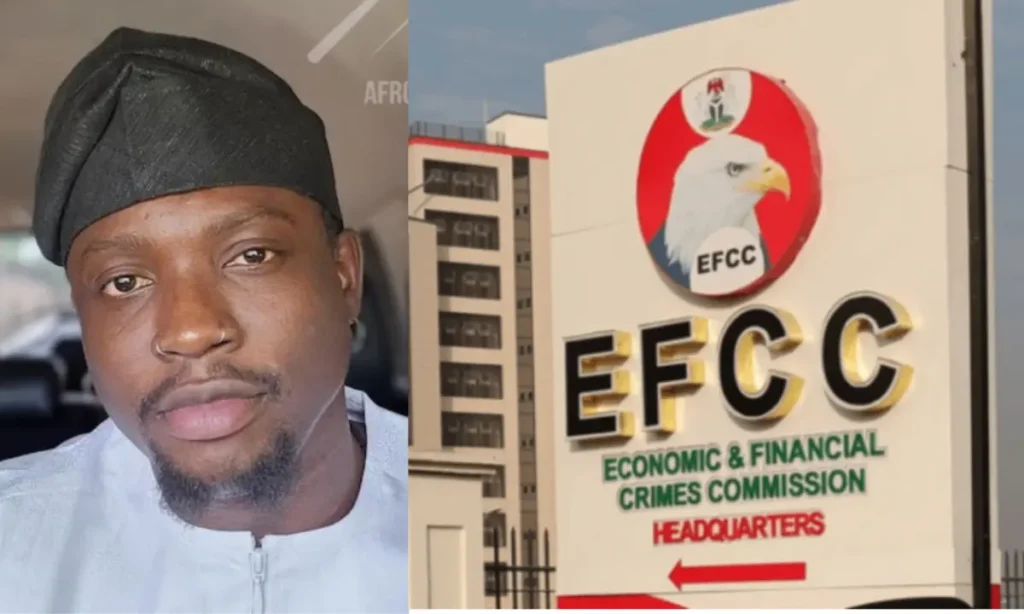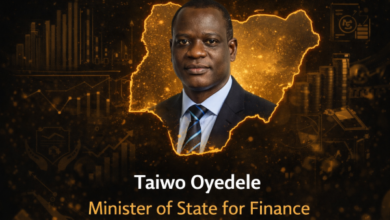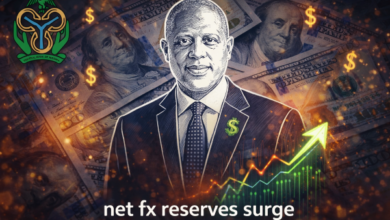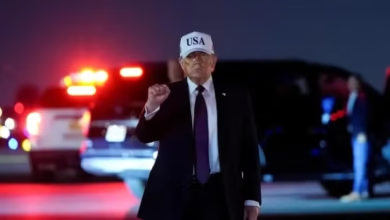VDM: EFCC Breaks Silence on Arrest, Cites Financial Crime Petitions, Offers Bail
The Economic and Financial Crimes Commission (EFCC) said it arrested and detained, Martins Otse, popularly known as VeryDarkMan (VDM) over his repeated refusal to honour several invitations extended to him.
A statement by Mr Dele Oyewale, the Spokesperson of the EFCC on Tuesday in Abuja said Otse, a Social Media Influencer was invited over allegations of financial malfeasance.
The arrest and subsequent detention of social media firebrand, Martins Otse, popularly known as VeryDarkMan (VDM), by the Economic and Financial Crimes Commission (EFCC) has sparked a nationwide discourse, blending the volatile power of digital influence with the firm arm of the law. But as sensationalism sweeps across social platforms, BRANDECONOMY delves beyond the noise to unpack the legal, societal, and institutional dimensions of this unfolding saga.
Meanwhile, Oyewale also said that Otse was invited by the commission in connection with series of petitions, bordering on alleged financial crimes it received.
He urged the public to refrain from speculation over the agency’s motives and allow it to carry out its constitutional duties.
The Allegations and EFCC’s Position
According to Oyewale, VDM was not merely picked up for his well-known online rants against the establishment. Rather, his arrest stems from “a series of petitions bordering on alleged financial crimes.” The EFCC maintains that Otse repeatedly ignored several formal invitations extended through known addresses and communication channels.
Oyewale emphasized:
“The EFCC should be allowed to do its job without fear or favour. As soon as investigations are concluded, charges will be filed.”
Crucially, he noted that while Otse’s acerbic criticism of the EFCC’s operations has been widely circulated on social media, his arrest was “not motivated by those actions.” Still, such comments, Oyewale added, “are condemnable and may be subject to future review by the appropriate law enforcement agency.”
In line with standard legal procedure, the Commission confirmed that it obtained a valid remand order to detain Otse, and has since offered him administrative bail—meaning he may regain his freedom upon meeting stipulated conditions.
Legal Oversight or Public Spectacle?
While the EFCC has cited legal grounds and procedural correctness, questions persist in public discourse: Was the arrest politically tinged? Is this an attempt to silence a vociferous critic under the guise of investigating financial impropriety?
Legal analysts who spoke to BRANDECONOMY highlight that the EFCC is empowered under the EFCC Act to investigate, invite, and detain individuals based on petitions or intelligence reports related to financial crime. However, the optics of timing and public visibility cannot be ignored—especially when dealing with a polarizing figure like VDM, whose fanbase sees him as a digital Robin Hood and whose critics label him as reckless and inflammatory.
The Rise of the Influencer Class vs. Institutional Authority
This case underscores a deeper societal clash: the ascendance of social media influencers wielding unfiltered digital clout vs. the traditional institutions of state power and law enforcement. Otse, who has built his brand on confrontational advocacy and exposés of societal corruption, represents a new breed of citizen watchdog—one that thrives on virality and public outrage.
Yet, with influence comes responsibility. Allegations of financial misconduct—if proven—could stain not just his reputation but also challenge the notion that digital fame offers a shield against legal accountability.
Institutional Transparency and the Rule of Law
For the EFCC, a body long plagued by public perception challenges, this case presents an opportunity to demonstrate commitment to due process. While the commission asserts that it followed all legal procedures in securing Otse’s arrest and detention, it must equally ensure that investigations are transparent, evidence-based, and free of political undertones.
Nigerians are watching closely—not just for the fate of VeryDarkMan, but for what this case says about fairness, justice, and how institutions handle public figures in an era of hyper-visibility and widespread mistrust.
A Moment for Media Responsibility
As the story develops, media platforms also bear a heavy responsibility. Beyond clickbait headlines and viral speculation lies a duty to inform the public with nuance and integrity. The presumption of innocence, a cornerstone of justice, must guide reportage—no matter how controversial the suspect.
The Road Ahead
Martins Otse may soon walk free on administrative bail, but his legal troubles are far from over. For now, what remains clear is that Nigeria’s evolving democratic space—where influencers, institutions, and the law constantly intersect—will continue to test the maturity of our justice system and the integrity of public dialogue.
BRANDECONOMY will continue to track this case with analytical rigour and informed context, keeping readers focused not just on who is being arrested, but why—and what it means for the rule of law in 21st-century Nigeria.











